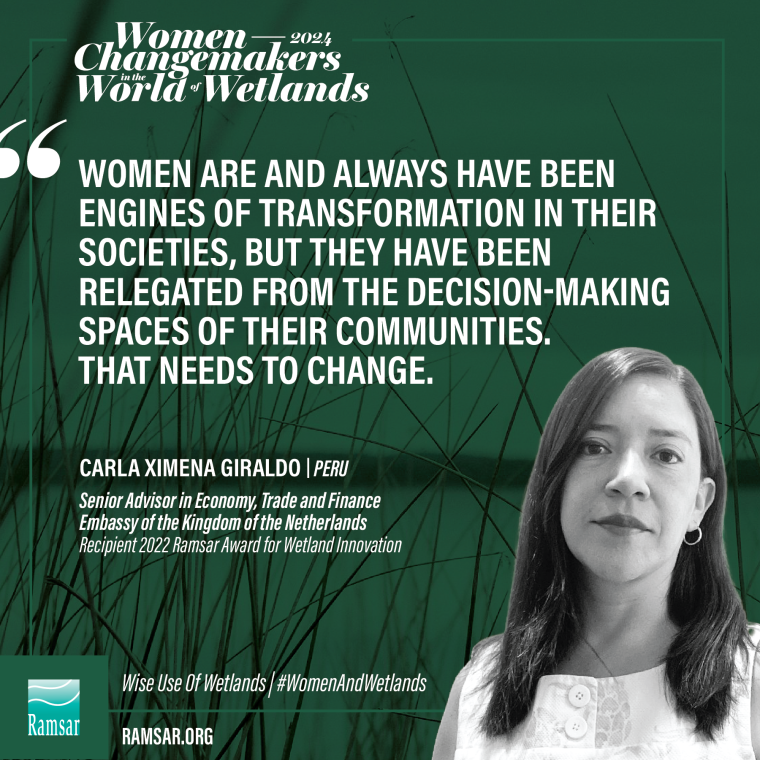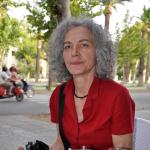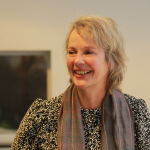
Ximena Giraldo
Senior Advisor in Economy, Trade and Finance Embassy of the Kingdom of the Netherlands
Biography
Ximena Giraldo is a distinguished expert in sustainability management, renowned for her expertise in implementing socio-environmental projects and fostering corporate social responsibility. Her passion for harmonizing development with social and environmental considerations emerged early in life, propelling her to pursue Communication for Development at the Pontificia Universidad Católica del Perú.
Building upon her foundational degree, Giraldo pursued a master's degree in public administration and public policy at the same university. She furthered her academic pursuits with a second master's degree in interdisciplinary studies of Economic, Social, and Environmental Sustainability, specializing in global change management.
Giraldo's professional journey is marked by remarkable achievements, notably the creation of the municipal recycling program "Waste that is not waste" in the Municipality of Miraflores, recognized for its innovative and inclusive management model. As the Manager of City Services and Environmental Management in the Municipality of Lima, she played a pivotal role in developing and approving the Local Climate Change Plan.
Her dedication to environmental stewardship was further exemplified during her tenure as President of the Municipal Authority of the Pantanos de Villa Wetland, where she received the prestigious Ramsar innovation Award 2022 for the Children's Guardians program, a testament to her commitment to social governance of ecosystems.
Acknowledged as a Young Global Changer by the Global Solutions Initiative, Giraldo has actively participated in various platforms such as T20 and received scholarships for international programs like the winter school 'From Extracting to Intersecting.' She is also a founding member of L+1, a sustainability promotion platform in Peru.
Currently serving as a Senior Advisor in Economy, Trade, and Finance at the Embassy of the Kingdom of the Netherlands, Giraldo champions human rights portfolios and facilitates exchange initiatives between the Netherlands, Peru, Ecuador, and Bolivia. Her multifaceted contributions continue to shape sustainable development practices regionally and globally.

Questions and Answers
What personal experience has shaped or inspired your journey?
When people ask me from what part of Peru I'm from, I always answer that I'm from the whole country. I was born in Puno, a city in the south of Peru located at 3800 meters above sea level, but I grew up in the city of Arequipa and studied and currently live in Lima, the capital. But since I was a little girl, I have traveled a lot because my father was from the south of the country and my mother from the north, so all my holidays and vacations were long journeys traveling by plane, bus, car, horse, donkey or whatever you can use to visit the relatives. Luckily, I’ve visited almost all of Peru and during these trips, I learned to love natural landscapes and mostly the coexistence between people and nature.
Who is the influential figure who has inspired your actions, and what specifically about them has been motivating?
Two women inspired my life from the beginning. First, my mother, showed me that women can be excellent professionals and mothers at the same time. Her courage showed me that it is possible to break the patriarchal and macho culture that exists in my country. The second woman was my Aunt and Godmother, Martha, who from a very young age embarked on the conservation project of Suasi Island in Puno. This project involved a lot of personal and professional sacrifice to care for and develop a unique conservation area in the world that has been a benchmark for innovation and nature protection. Her courage and leadership have always been very inspiring.
In your conservation efforts for wetlands, what key challenges did you face and how has this experience fuelled your dedication to making a positive impact?
The main challenge has been to control urban pressure on the wetland territory. Many people in the city are not aware of the wetland and therefore do not value its existence or the multiple benefits it provides. One of the strategies devised by the team was to bring the wetland closer to the residents of the surrounding districts of the protected area. This approach was not only to be informative but also practical with the expectation of changing people's attitudes and motivating action. Part of this strategy was to involve children not only as visitors but also as ambassadors of the Wetland. In this way, we also committed the future generation, neighbours of the wetland to its conservation.
All women in this category : Wise Use of Wetlands

Gordana Beltram
National Coordinator 2014-2022 Ministry of the Environment and Spatial Planning Slovenia.
More information
Dr. Siobhan Fennessy
Professor of Environmental Studies & Biology, Kenyon College
More information
Ximena Giraldo
Senior Advisor in Economy, Trade and Finance Embassy of the Kingdom of the Netherlands
More information